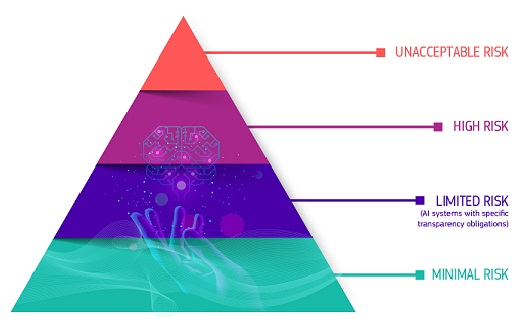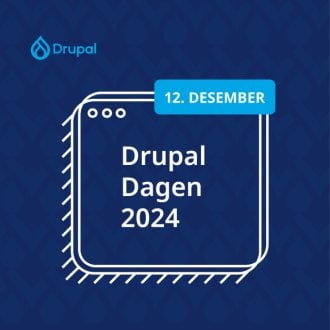EU's AI Act Explained: Key Takeaways for Website Owners

What is the European AI Act?
The European AI Act is a set of regulations introduced by the European Union to ensure the safe and ethical use of artificial intelligence. Its primary goal is to protect users while promoting innovation and competition within the AI industry. The regulations will be monitored by authorities in each country as well as an EU commission.
Information source: AI Act | Shaping Europe’s digital future (europa.eu)
Key points European AI Act
Risk classes determine AI regulation
AI systems are classified into four risk categories: unacceptable, high, limited, and minimal.

Examples of AI applications for each class
Unacceptable Risk AI
- Social Scoring Systems by Governments: AI systems used to rank citizens based on behaviour, socio-economic status, or personal characteristics.
- Real-Time Biometric Identification in Public Spaces: Systems that scan and identify individuals in real-time for surveillance purposes without their consent.
Those groups of AI systems are banned in the future!
High-Risk AI
- Biometric Identification and Categorization of Natural Persons: AI used for facial recognition or fingerprint scanning for access control in workplaces or secure facilities.
- Healthcare AI: Diagnostic tools and systems used in medical devices or for recommending treatments.
This group of AI systems, which might impact safety or fundamental rights, must meet strict requirements and will be regularly monitored for compliance. Users must be made aware when they are interacting with this type of AI.
Limited Risk AI
- Chatbots and Virtual Assistants: AI systems that interact with users on websites to provide customer service or support.
- Recommendation Systems: AI that suggests products, services, or content to users based on their past behaviour (e.g. online shopping recommendations, movie or music suggestions).
Limited and minimal risk AI systems face fewer regulatory obligations.
Minimal Risk AI
- Spam Filters: AI used to detect and filter out unwanted email.
- AI-Powered Autocorrect and Grammar Checkers: Tools that assist users in writing by suggesting corrections and improvements.
What does the EU AI regulation say about large language models like GPT-4o, Gemini and Llama3?
In future, anyone who develops such basic models must provide information about the training data and test procedures by means of "technical documentation". Proof must also be provided that applicable copyright law has been complied with. For users who are using these tools, there are no restrictions at the moment.
When will the new AI Act be in effect?
The EU wants to introduce the new regulations gradually. For example, bans will not apply until February 2025 and some regulations for high-risk AI systems will not apply until 36 months after the start of the AI Act.
Tips for using AI on your website and content-creation
As the AI Act is mainly targeting companies who develop AI applications there is only a limited need for immediate action. However, there are some recommendations for website administrators.
- User Awareness: You must inform users when content or images are generated by AI. This can be done through clear labels or disclaimers.
- Clear Communication: Ensure users understand how AI-generated content is created and used on your website.
- Quality Control: Regularly review AI-generated content to prevent the dissemination of harmful, misleading, or inappropriate information.
- Compliance with GDPR: Ensure that AI tools you are using adhere to the General Data Protection Regulation (GDPR), safeguarding user data.
Disclaimer: This content was partially created with the help of ChatGPT based on the GPT-4 architecture.
Latest news
Arrangement som samler webentusiaster, designere, prosjektledere og innholdsskapere for å utforske hvordan du kan bruke Drupal til å lage en enda bedre nettløsning.

20 employees from Ramsalt Lab had the opportunity to attend DrupalCon in the city of Barcelona. Read our top recommendations from the conference!

Vi søker en visjonær og handlekraftig daglig leder som kan ta vårt utviklingsfirma til nye høyder! Er du en strategisk leder med solid forretningsforståelse og en sterk lidenskap for teknologi og innovasjon? Da vil vi høre fra deg!

We have gathered some reasons why Drupal could be a better choice for your needs.




